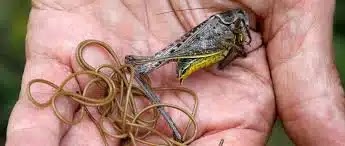Parasitism is the most widely recognized lifestyle; over half of all creature species are parasites. Parasites happen in every creature specie and they may profoundly affect the wellbeing of individuals, homegrown creatures and natural life.
Parasitology is the investigation of parasitism; a multidisciplinary subject covering numerous points including morphology, scientific categorization, science, conduct, life-cycles, pathogenesis, the study of disease transmission, nature, physiology, organic chemistry, hereditary qualities and sub-atomic science, just as the finding, immunology and treatment of contaminations.
Parasites live to the detriment of their hosts though other symbiotes might be mutualists (living in shared advantage with host) or commensals (living without advantage or inconvenience to have). Parasites may contaminate the gastrointestinal parcels or circulatory frameworks of their hosts, they may attack various tissues and organs or they may live on the outside surfaces of their hosts. Numerous contaminations might be asymptomatic though others may cause intense (transient) or constant (diligent) clinical sicknesses running especially in seriousness (gentle to lethal).
Parasitic contaminations may cause mortality (fetal, neonatal, grown-up death), dismalness (sickness show by enteritis, fever, pallor, and so on), creation misfortunes (decreased meat, milk, fiber creation), and tissue injuries (diminished attractiveness of item). In spite of numerous advances in parasite therapy and control, diseases actually persevere because of numerous components, including urbanization (packing together); more concentrated cultivating frameworks, more noteworthy movement of creatures, further land and marine turn of events, insufficient profluent removal, development of parasite drug opposition, and spread of vector insect poison obstruction.
Parasite collections
Numerous kinds of creatures have embraced a parasitic method of presence; that is, they require a host for their own endurance. Three significant gatherings of parasites are perceived: protozoa (having a place with the realm Protista), and helminths and arthropods (having a place with the realm Animalia, or Metazoa).
Protozoa
Over 10,000 types of single-celled protozoa have been depicted in the gut, blood or tissues of vertebrate and invertebrate hosts. Parasitic lashes cause enteric illnesses like giardiasis, urogenital infections like trichomoniasis, fundamental sicknesses like resting ailment, and tissue sicknesses like Chaga’s illness and kala azar. Parasitic amoebae cause loose bowels, meningoencephalitis and corneal sores. Spore-framing sporozoa cause numerous genuine illnesses: Apicomplexa cause coccidiosis, intestinal sickness and tick fevers; Microspora parasitize fish and creepy crawlies; and Ascetospora cause occasional mortalities in shellfish. Parasitic ciliates cause looseness of the bowels or sores in people and creatures while commensal species cause genuine fouling issues in hydroponics.
Helminths
Around 50,000 types of multicellular helminths (worms) have been depicted from a wide scope of hosts. Roundworms (nematodes) cause a lot of bleakness and mortality in people and creatures all through the world. Genuine contaminations incorporate filariases, hookworm and threadworm sicknesses. Larval and grown-up tapeworms (cestodes) might be found in numerous vertebrate hosts. A few animal categories don’t cause clinical infection though others may cause serious weight reduction, looseness of the bowels, stomach agony or space-involving sores. Accidents (trematodes) incorporate numerous significant species like sheep liver accident and human schistosomes or blood accidents.
Arthropods
Thousands of arthropods are parasitic at some stage in their life-cycles. Many reason genuine sicknesses and breaking point agrarian usefulness. Parasitic bugs incorporate gnawing and sucking lice which may cause skin injuries or iron deficiency, insects which may cause hypersensitive dermatitis, and different flies which suck blood as grown-ups or produce hatchlings which feed on have tissues. Parasitic 8-legged creature incorporate ticks which feed on blood and may cause iron deficiency or loss of motion and vermin which feed on skin and may cause gentle tingling, going bald or extreme mange.
© 2021 Niazi TV – Education, News & Entertainment
